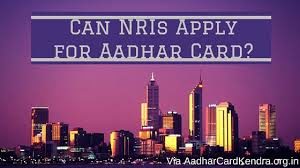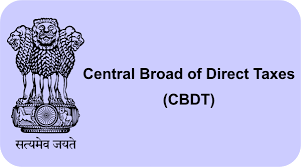 Aadhaar is a unique identification number issued by the Indian government to every individual resident of India. It is based on demographic and biometric data of the individual and thus no duplicate number can be issued to the same individual.
Aadhaar is a unique identification number issued by the Indian government to every individual resident of India. It is based on demographic and biometric data of the individual and thus no duplicate number can be issued to the same individual.
Proposal to make Aadhaar mandatory for PAN and tax return filing
As a part of efforts to make the financial system more transparent and to curb the menace of black money, the Finance Minister has proposed changes to the Finance Bill,2017, whereby Aadhaar (Aadhaar number / Enrolment ID) would be mandatory, effective July 1 2017, for filing income tax returns and for application for PAN. This will be applicable to every person eligible to obtain Aadhaar. Exclusion for specified categories will be notified.
Additionally, all persons who are allotted PAN as on July 1, 2017, and eligible for Aadhaar number, would need to intimate their Aadhaar number to such authority in the form and manner as may be prescribed, on or before a date to be notified. PAN issued earlier will become invalid if a person fails to intimate his /her Aadhaar number within the prescribed time limit.
Who is eligible for Aadhaar enrolment?
As per the Aadhaar (Targeted Delivery of Financial and other Subsidies, Benefits and Services) Act, 2016, every resident is eligible to obtain an Aadhaar number by submitting his/her demographic and biometric information as part of the enrolment process. The central government may notify other categories of individuals who may be entitled to obtain an Aadhaar number.
Further, a ‘resident’ is defined to mean an individual who has resided in India for 182 days or more in aggregate in 12-month period immediately preceding the date of application for enrolment.
As Aadhaar enrolment is based on residency rather than citizenship, foreign nationals meeting the test of resident as defined above, will be eligible to obtain Aadhaar.
Likely challenges for foreign nationals
Documentation requirement for enrolling for Aadhaar
There is a list of documents that can be accepted as proof of identity and proof of address at the time of enrolling. While a passport would suffice as a proof of identity, there could be challenges with the documentation for proof of address. While there are 35 different documents prescribed for address proof, foreign nationals working in India may qualify for limited documents such as an Indian bank account statement, credit card statement and landline telephone bill or rental agreement. Many foreign nationals do not have bank accounts in India or live in employer-provided accommodations.
Sharing biometrics details
Foreign nationals could also have concerns in sharing their biometrics details with the government.
Likely challenges for Indian citizens abroad
As the person has to be present in India for submitting biometric information, Indian citizens who are overseas, may face challenges in providing biometric details for enrolling for Aadhaar.
Employers could also be challenged with TDS compliance for Indian employees working abroad and on India payroll where the employee’s PAN becomes invalid due to non-intimation of Aadhaar within the prescribed time.
Indian citizens qualifying for Aadhaar but yet to apply, may be unable to file their tax return in time. As a consequence, they may be exposed to additional interest, fee and penalty. Also, they may not be eligible to carry forward capital loss.
Expectation from the government
Considering the underlying objective of linking Aadhaar with PAN and the challenges especially for foreign nationals, should they be excluded from this additional requirement?
Alternatively, detailed guidelines specifying categories of foreign nationals requiring Aadhaar with relaxed timeframe should be prescribed to address the sentiments of foreign nationals in India. Further, the government should consider providing wider alternatives towards address proof such as Residential Permit.
There should also be provision of suitable options overseas for Aadhaar enrolment / relaxed time frame for Indian citizens living / working abroad.
Hopefully, these challenges would be appropriately considered by the government and necessary changes in the regulation / procedure be made available before the proposed deadline of July 1, 2017.





